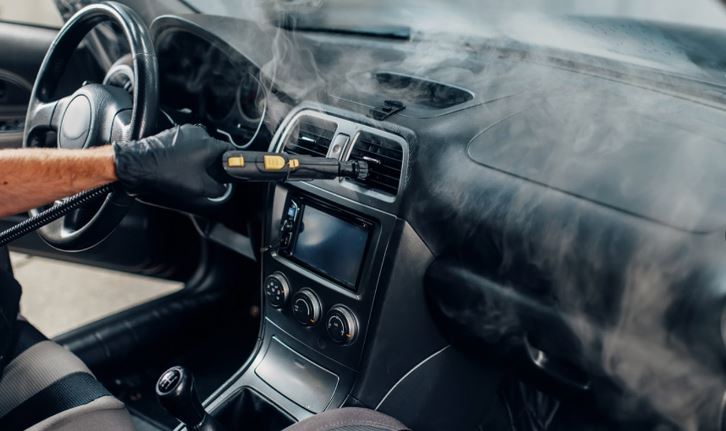


In the dynamic world of auto detailing, where precision and excellence are paramount, technology plays an increasingly pivotal role. Advancements in tools, products, and techniques have revolutionized the way cars are cleaned, polished, and protected. In this comprehensive exploration, we delve into the transformative impact of technology on auto detailing, and how these innovations are shaping the industry. Additionally, we’ll touch upon the relevance of technology in addressing challenges related to scrap cars for cash, shedding light on sustainable practices within the automotive realm.
The traditional days of hand-washing and manual polishing are gradually giving way to cutting-edge tools. Orbital polishers, dual-action machines, and random orbital buffers are among the technological marvels that have significantly improved the efficiency and effectiveness of auto detailing processes. These tools allow detailers to achieve flawless finishes with less effort and in a fraction of the time.
The advent of high-pressure steam cleaners has ushered in a new era of eco-friendly auto detailing. These devices use the power of steam to lift dirt, grime, and contaminants from surfaces, providing a thorough and chemical-free cleaning process. Steam cleaning not only conserves water but also eliminates the need for harsh chemicals, making it an environmentally conscious choice for detailers.
In the realm of technological innovation, automated detailing tools have emerged as efficient time-savers. Robotic systems equipped with precision sensors and programming can perform tasks like polishing and waxing with consistent accuracy. While not yet mainstream, these automated solutions hint at the future possibilities of hands-free, technology-driven auto detailing.
Nanotechnology has permeated the auto detailing industry, offering solutions that go beyond traditional cleaning and protection methods. Nanoceramic coatings, for instance, form a molecular-level bond with the vehicle’s paint, providing long-lasting protection against environmental contaminants, UV rays, and oxidation. The application of nanotechnology represents a paradigm shift in how cars are protected and maintained.
The digital revolution has extended its reach to auto detailing businesses through the development of mobile apps. Detailers can now efficiently manage appointments, track customer preferences, and even process payments using mobile applications. These apps not only enhance the customer experience but also streamline the operational aspects of running an auto detailing business.
The versatility of 3D printing technology has found its way into the auto detailing arena. Detailers can now create custom tools, parts, and accessories tailored to specific detailing needs. From intricate brush designs to unique nozzle attachments, 3D printing opens up possibilities for detailers to innovate and address specific challenges in their craft.
Augmented reality is making waves in auto detailing training programs. AR applications provide interactive, hands-on learning experiences for detailers, allowing them to practice techniques virtually before applying them to real vehicles. This technology enhances skill development, accelerates the learning curve, and ensures a high standard of expertise in the industry.
As the automotive industry grapples with the growing issue of end-of-life vehicles, technology has stepped in to address environmental concerns. Logan scrap cars involves the responsible disposal and recycling of vehicles that have reached the end of their operational life. Technological innovations in recycling processes aim to extract valuable materials from scrap cars while minimizing environmental impact.
The integration of AI and machine learning brings a predictive element to auto detailing. These technologies can analyze data on vehicle conditions, weather patterns, and environmental factors to predict when a car might need detailing services. This proactive approach ensures that detailers can reach out to customers at the right time, offering services before issues become more challenging to address.
Advancements in technology extend beyond the detailing process to address sustainability concerns, particularly in dealing with scrap cars. Cutting-edge recycling technologies aim to extract and reuse materials from scrapped vehicles, contributing to a more circular economy. Detailers can play a role by adopting sustainable practices and supporting environmentally responsible initiatives in the disposal of end-of-life vehicles.
The role of technology in auto detailing has transformed the industry, elevating it to new heights of precision, efficiency, and environmental responsibility. From advanced tools and materials to innovative recycling practices for scrap cars, technology is steering the auto detailing sector toward a more sustainable and technologically advanced future. As we embrace these advancements, both detailers and car owners alike can expect an elevated standard of care for their vehicles, ensuring they not only look their best but also contribute to a greener, more eco-conscious automotive landscape.



